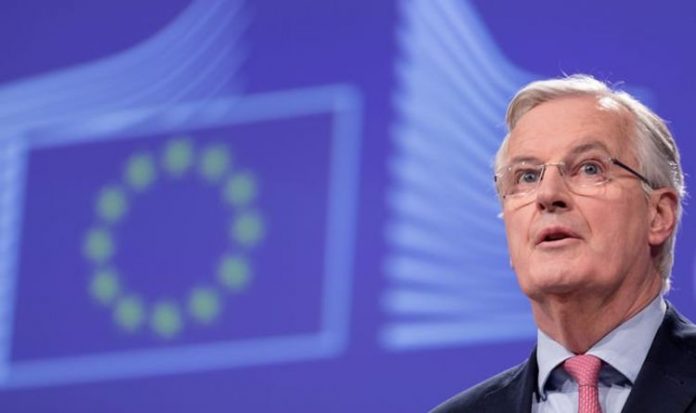Brexit has caused concern in the EU over its future as fears grow over whether the UK’s departure could spark fresh euroscepticism elsewhere. There are a number of high profile figures across Europe who have pushed their countries to follow in the UK’s footsteps. In Italy, Matteo Salvini has emerged as a fierce critic of the EU in recent years, while in France, Marine Le Pen has been the main challenger to President Emmanuel Macron. This led Michel Barnier to admit every EU country “has a Nigel Farage” as he made a stunning admission about the bloc.
He said in November 2018: “There is now a Farage in every country. The European project is fragile, it is under threat, it is perishable.”
He added at the European People’s Party conference in Helsinki: “We need a strong Europe that speaks in one and the same voice.
“We must forcefully defend and promote our European model.
“If we don’t write the rules of our game, China will write them for us.
“We need an EU that is capable and credible when it comes to security, defence, cyber-security and civil protection.
“We all have to fight against those who want to demolish Europe with their fear, their populist deceit, their attacks against the European project.
“If we want a Europe that is sovereign and close to citizens on what really matters, the time to act is now. We must stand up for Europe.”
Euroscepticism in Italy has been an ever present fixture of the country’s politics – but still shows no sign of materialising into a notable threat to the EU.
After Brexit, Matteo Salvini’s Lega party eased off on the eurosceptic rhetoric.
READ MORE: Brexit: UK could still bail out EU countries despite leaving bloc
Mrs Le Pen was defeated by Emmanuel Macron in France’s presidential elections in 2017, and said while the issue of EU membership would no longer be put on the table, she would bring it back to the forefront if her frustration with Brussels grows.
She said in April 2019: “We have made changes in the last two years. The situation of isolation that we had in Europe is now over.
“We didn’t have much choice: either we had to submit [to the EU] or we had to leave it. But now we have allies.”
Last January, she said: “We are pragmatic, we are not ideologues. If we find all our sovereignties, that we can’t reform the European Central Bank, and that the euro remains a major problem, we’ll put the problem back on the table.”







